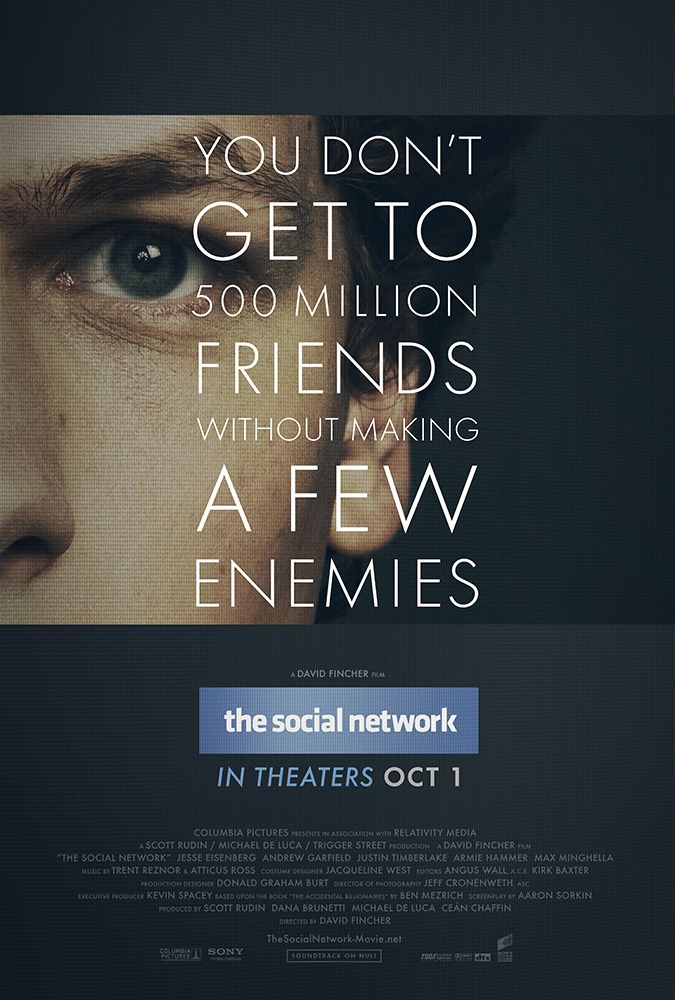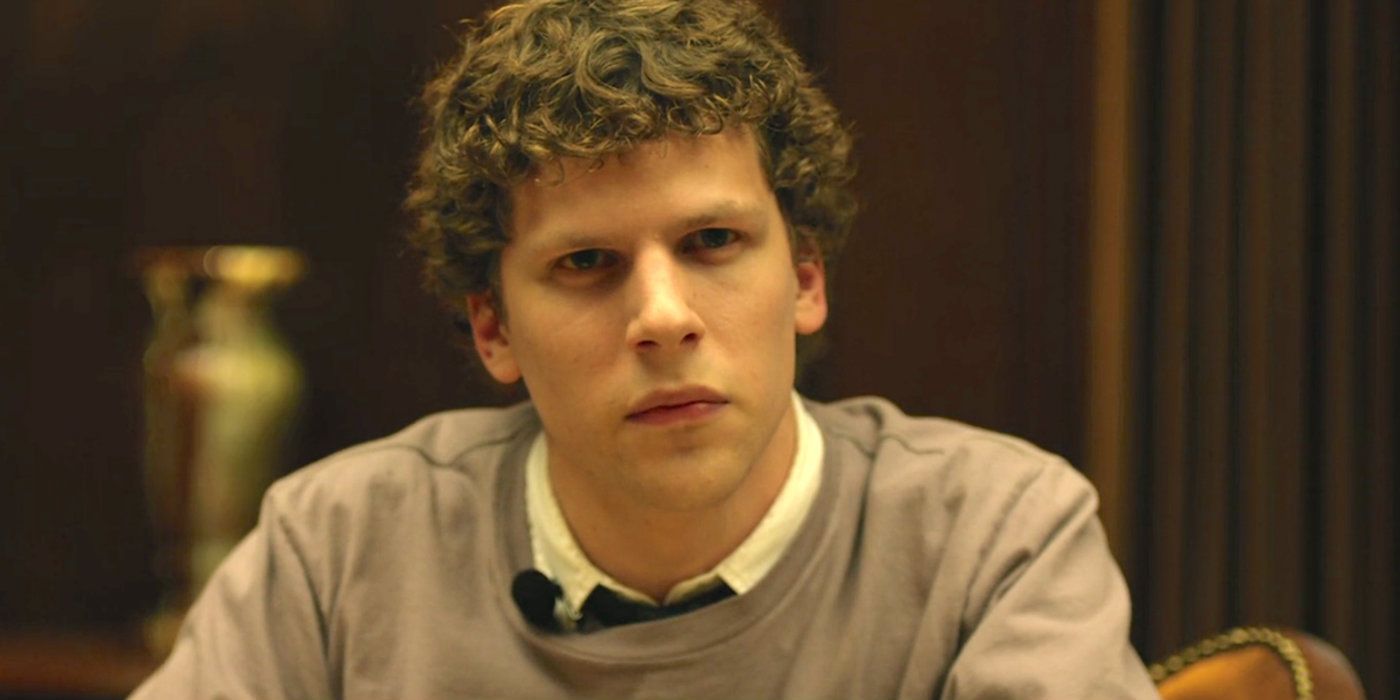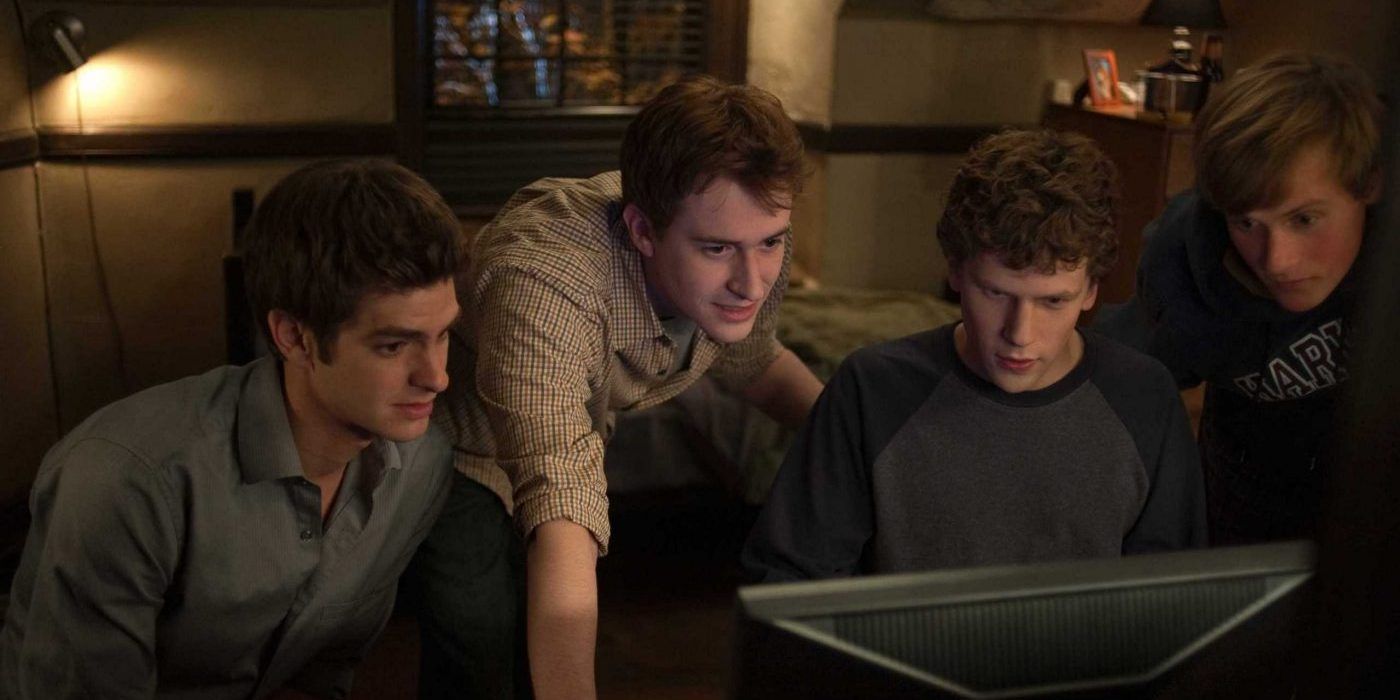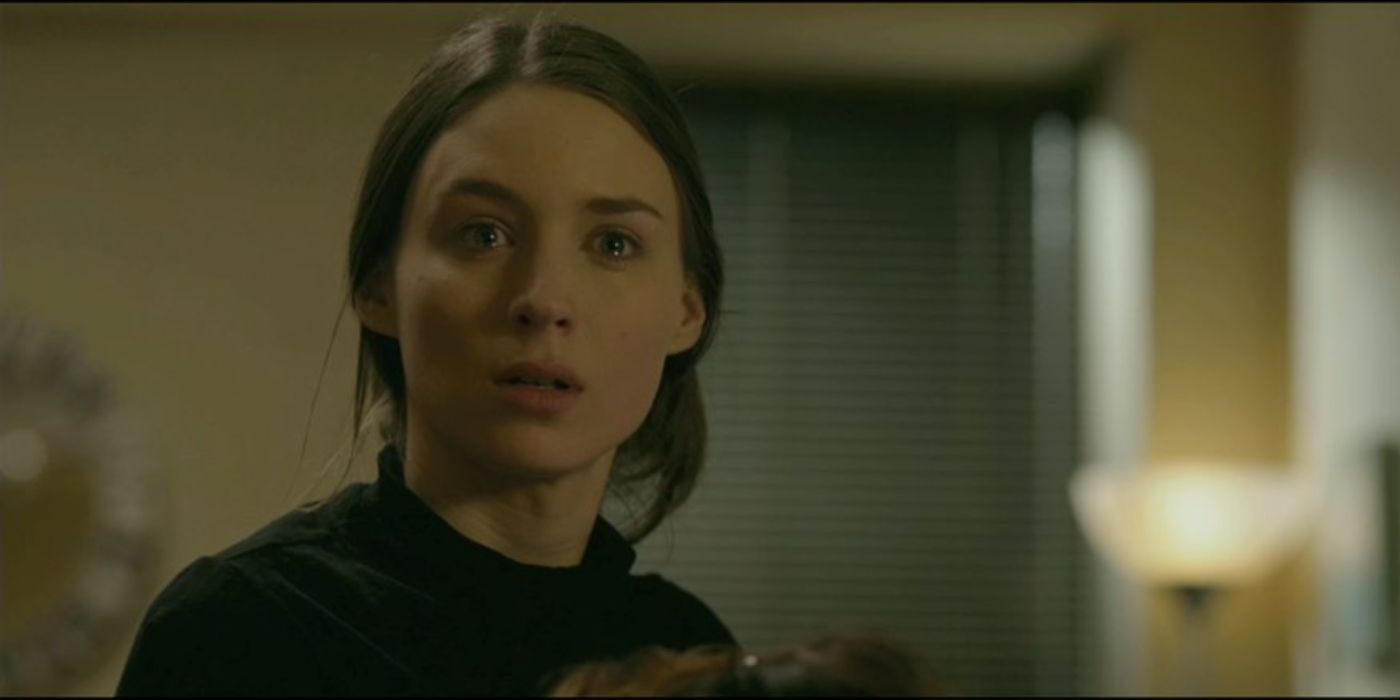The Big Picture
- The Social Network is a thriller framed in conference rooms during the creation and legal battles around Facebook.
- The film doesn't offer social media commentary due to its early release, focusing on Zuckerberg's rise.
- Erica Albright's character exposes the dark side of social media through her interactions with Mark Zuckerberg.
In the past year alone, titles like BlackBerry, Air, and Flamin’ Hot chronicled the creation of some of the most popular products to hit the market. However, there was once a time when this subject was a novelty. That all changed when The Social Network hit theaters in October 2010. Directed by David Fincher, The Social Network follows the creation of Facebook and the rise of Mark Zuckerberg, played by Jesse Eisenberg. The Social Network went on to receive eight nominations from the Academy Awards, walking away with three wins.
Just as the legacy of Facebook has evolved in the decade since The Social Network, so too has the David Fincher film. Even though the subject of the film was about the genesis of a social media platform, the movie itself offers little to no commentary on social media as a whole. Instead, it operates like a psychological thriller, where the intrigue is found within the four walls of a boardroom instead of from a computer screen.

The Social Network
As Harvard student Mark Zuckerberg creates the social networking site that would become known as Facebook, he is sued by the twins who claimed he stole their idea and by the co-founder who was later squeezed out of the business.
- Release Date
- October 1, 2010
- Director
- David Fincher
- Cast
- Jesse Eisenberg , Rooney Mara , Bryan Barter , Dustin Fitzsimons , Armie Hammer , Joseph Mazzello
- Runtime
- 120 minutes
The Framing of ‘The Social Network’ Takes Place in Conference Rooms
Armed with the script penned by Aaron Sorkin, David Fincher approached The Social Network like his previous thrillers, such as Zodiac and Se7en. The Social Network tracks the creation of Facebook through the context of two lawsuits. In one lawsuit, Mark Zuckerberg has been sued by Divya Narendra (Max Minghella) and the Winklevoss twins, Cameron and Tyler, played by Armie Hammer; they are disputing who came up with the original idea for the multi-billion dollar social media platform. At the same time, Zuckerberg is sued by his former CFO and best friend, Eduardo Saverin (Andrew Garfield) after his ownership share was diluted down to 0.03%, effectively removing him from Facebook. Mark’s story, and effectively Facebook’s story, is told through flashbacks while being deposed by two different sets of lawyers.
The intrigue and momentum of the plot come from the quick-witted dialogue courtesy of Aaron Sorkin, which goes to new heights from within the walls of conference rooms. When asked by Gage (David Selby), one of the Winklevoss twins' lawyers, if he has Mark’s full attention, Mark asserts his dominance by verbally tearing them down; he promptly berates them for wasting his time when his full attention is back with his company where they’re breaking ground in ways no one in that room is intellectually capable of. Scenes like this play out like a fantasy that highlights the peak of Mark’s power.
Yet, it’s also in these conference rooms where it’s revealed that Zuckerberg is the antihero of The Social Network. Throughout the film, it’s unclear what happened between Eduardo and Mark to cause such a falling out that led to litigation. Even across the table from each other, the audience is given glimpses of their friendship that remains. However, through the flashbacks, audiences see the hints of jealousy that lingered with Mark after Eduardo got accepted into The Phoenix final club; Mark didn’t even get an invitation. It all leads to the reveal that after Eduardo froze the company bank account, Mark retaliates by tricking his CFO into a bad business deal, effectively pushing his best friend out of their company. One of the most memorable scenes from the film is Eduardo confronting Mark at the Facebook office in Palo Alto just before Facebook hits one million users. The suspense between these two friends culminating where the height of success meets the destruction of a friendship is the marking of a great thriller.
‘The Social Network’ Has Little to Say About Social Media Because of How Young It Was
At the time of the release of The Social Network, Mark Zuckerberg and Facebook were seen as a modern success story, being compared to the likes of Steve Jobs and Bill Gates. Facebook was founded in Zuckerberg’s dorm while he was a student at Harvard University in 2004. The Accidental Billionaires by Ben Mezrich, the book which was adapted into The Social Network, was released in 2009. To put this into context, Instagram had just launched when The Social Network hit theaters; meanwhile, Twitter wasn’t even five years old; and MySpace had steadily declined in popularity.
There was a time when social media and their possibilities were optimistic. It was born out of the idea of connecting college students to each other, recreating the college experience online. The Social Network wasn’t focused on commentary on social media because there wasn’t enough to comment on it. In the decade since The Social Network, we have since watched how Facebook could impact the likes of politics, businesses, even our interpersonal relationships. Who knew Mark’s original lines of coding could create division that would cause many to question the validity of election results. The dream of social media has become a nightmare, but The Social Network couldn’t have known it at the time.
‘The Social Network’s Commentary on Social Media Can Be Found From Erica Albright
The very few pieces of commentary about the potential consequences of social media are found from Mark Zuckerberg’s girlfriend– Erica Albright, played by Rooney Mara. Her character is the first victim of social media, offering warning signs of how social media can be harmful. After Erica dumps him in the opening scene of the film, Mark returns to his dorm room and begins insulting her on his blog; it’s through his anger-fueled blogging that Mark gets the idea to create Facesmash, a website that rates girls at Harvard based on attractiveness. While watching a montage of men participating, it’s the reactions from the women that shine a light on the darker ramifications. Not only are the women shown responding to the site annoyed, they are shocked to see other women they know plastered on a site competing with each other based on hotness and without their consent. Maybe Aaron Sorkin didn’t know it yet when he wrote out that scene, but he unconsciously exposed the ramifications when left unchecked. Based on research that has been conducted over the past decade, we do know that women are more likely to be attacked on social media, with a higher percentage of those women being BIPOC.
On that same night, Erica is harassed by male classmates thanks to Mark insulting her bra size on his blog. Later in the film, Mark spots Erica out at dinner with a group of her friends and tries to talk to her. Erica wants nothing to do with her former boyfriend after the way he cruelly talked about her. It’s in this scene, which also happens to be her final scene onscreen in the film, where Erica hits Mark with a haunting reminder– the Internet is written in ink, not pencil. Every word, every thought that’s shared on your social media of choice can’t be easily erased once it’s out in the world. Social media may come with the disassociation that comes from posting, but there will always be consequences for what’s published on the Internet.
If we were paying attention, the writing was on “the Wall” during the opening scene of The Social Network. In it, Mark and Erica are at a bar in Boston, and they struggle to connect in conversation. Mark would go on to insult Erica’s intelligence for attending Boston University, which he views as inferior to Harvard. Erica goes on to dump him and tells him that he will go through life thinking that women hate him because he’s a nerd when, in reality, he’s just an asshole. According to the plot of the film, Facebook was born out of spite. Instead of digging further into how that break-up would’ve impacted the way social media could evolve, The Social Network is more interested in documenting Facebook’s creation through the lens of litigation between Mark and his enemies. While it is effective as a thriller that belongs among the best of David Fincher’s filmography, The Social Network shouldn’t be seen as a commentary on social media because it wasn’t interested in being commentary in the first place. Perhaps if Fincher were to make a sequel, then he could have something meaningful to say about social media.
The Social Network is available to stream on Max in the U.S.



